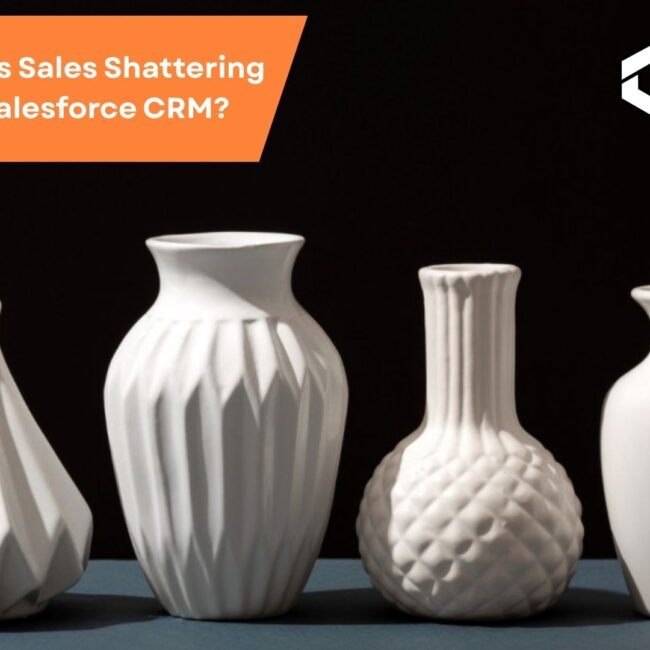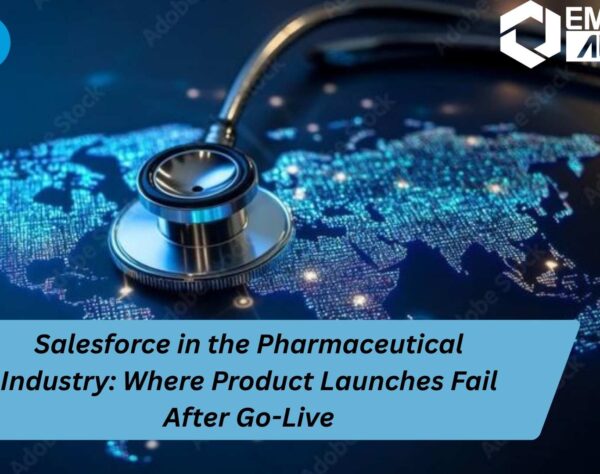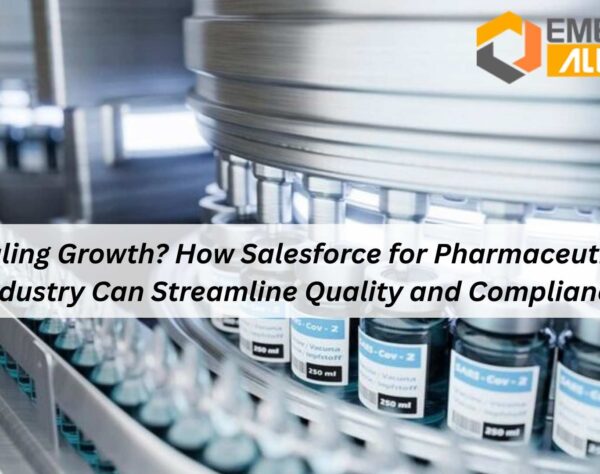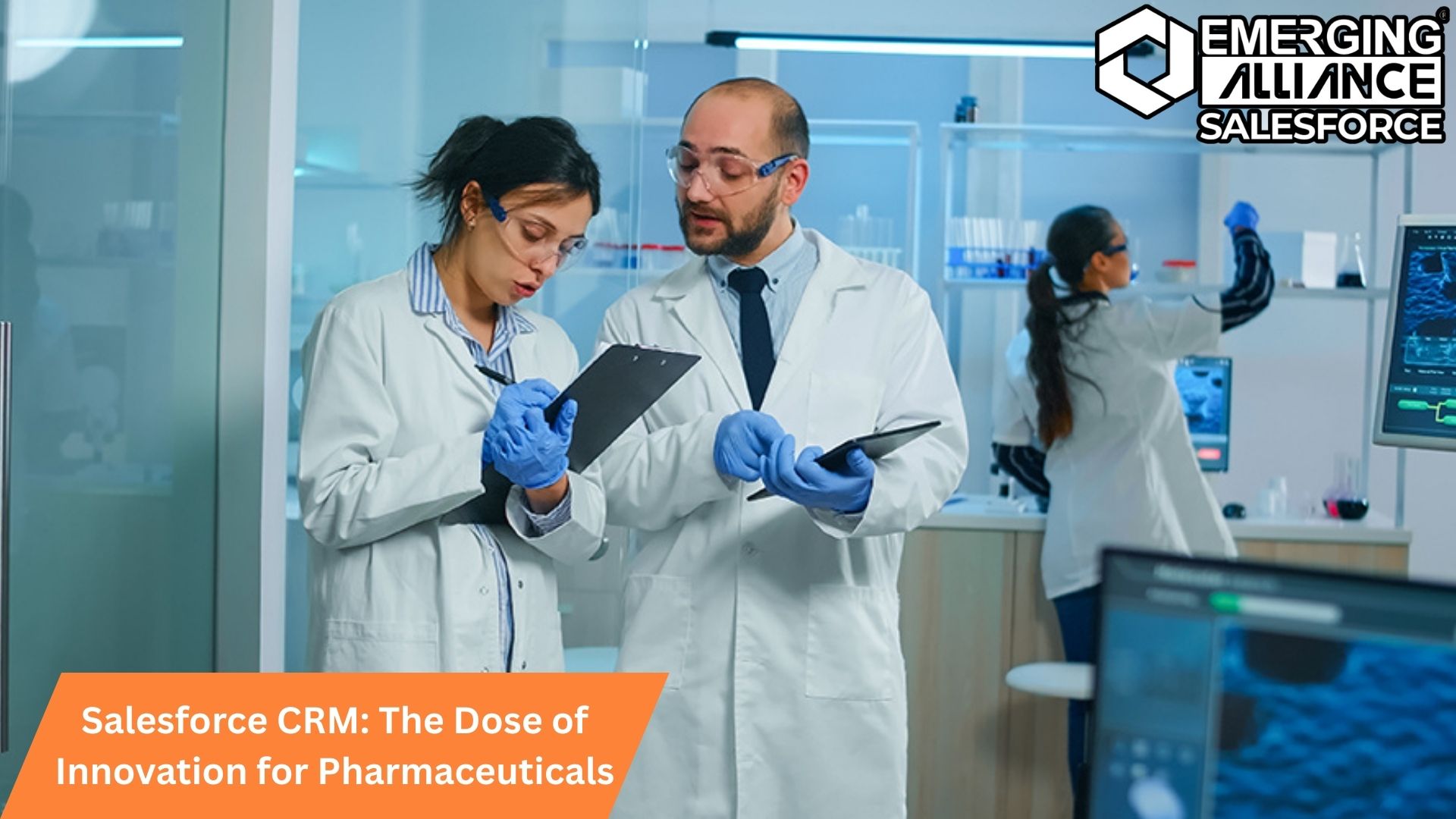
Salesforce CRM: The Dose of Innovation for Pharmaceuticals Industry
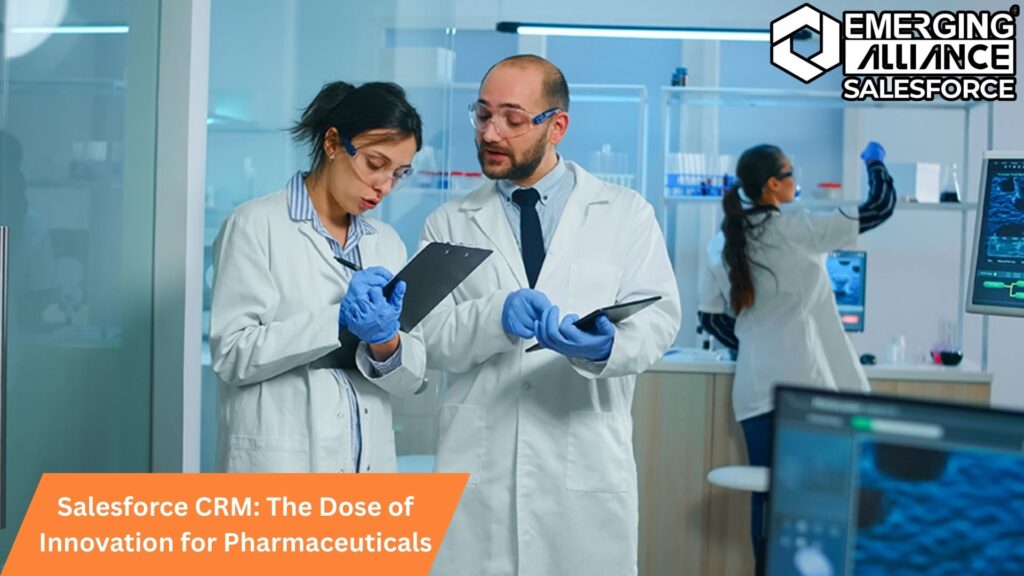
Redefining Pharmaceutical Excellence Through CRM Innovation
The pharmaceutical industry stands at the crossroads of science and service. While drug discovery and manufacturing remain its backbone, what truly sets a pharmaceutical brand apart today is its relationship with people—patients, healthcare professionals (HCPs), and regulators. In this new era, it’s no longer just about the pill but about the experience around the pill—and that’s exactly where Salesforce CRM brings its transformative power.
As the world’s #1 CRM platform, Salesforce is not just a tool—it’s an ecosystem built to redefine engagement, personalize communication, and streamline sales workflows across the entire pharmaceutical value chain. But why is Salesforce CRM seen as the perfect “dose” of innovation? Let’s dive in.
The Shift from Product-Centric to Relationship-Centric Pharmaceuticals
Historically, pharmaceutical companies succeeded by focusing on product excellence, regulatory compliance, and market penetration. But the modern pharmaceutical landscape is patient-first, digitally driven, and data-rich. Whether you’re a specialty drug manufacturer, a biotech startup, or a global pharmaceutical leader, managing relationships has become more complex—and more crucial—than ever.
This shift demands a powerful CRM solution. Salesforce CRM delivers exactly that: a unified, cloud-based platform that allows pharmaceutical teams to build trust, nurture leads, empower reps, and exceed compliance standards. It’s a customer-first revolution for an industry long centered on products.
Salesforce CRM Capabilities Tailored for Pharmaceutical Excellence
Let’s explore the CRM features that make Salesforce a must-have for the pharmaceutical sector:
1. Holistic HCP Relationship Management
Salesforce CRM helps sales and marketing teams gain a complete, 360° view of every HCP they interact with. From prescribing patterns to preferred communication channels, this data empowers smarter, targeted engagement that resonates.
2. Intelligent Sales Automation
Sales reps in the pharmaceutical industry often manage large territories and a complex network of providers. Salesforce CRM automates scheduling, sample tracking, meeting notes, and follow-up reminders—maximizing field force effectiveness.
3. Regulatory-Ready Compliance Tools
For pharmaceutical companies, compliance isn’t optional—it’s survival. Salesforce CRM supports built-in workflows that track approvals, document sample distribution, and ensure promotional materials comply with medical and legal regulations.
4. AI-Powered Insights with Salesforce Einstein
Imagine your CRM suggesting the next best action based on HCP behavior or prescribing history. With Salesforce Einstein, AI is built into the CRM to make every decision smarter—from marketing campaigns to rep activity.
5. Seamless Multichannel Engagement
HCPs and patients interact through various channels—email, mobile, webinars, and even WhatsApp. Salesforce CRM ensures consistent messaging across every touchpoint, delivering true omnichannel engagement for pharmaceutical brands.
Why Salesforce CRM is More Than Just a Tech Stack
Unlike generic CRM tools, Salesforce CRM is a customizable, scalable powerhouse built for innovation. What makes it especially powerful for pharmaceutical companies is its ability to become a central nervous system for all commercial operations.
From launching a new drug to managing key opinion leaders (KOLs), Salesforce integrates seamlessly into marketing, sales, service, and compliance strategies—without missing a beat.
- Marketing Cloud for pharma-specific journey mapping
- Sales Cloud for field force optimization
- Service Cloud for responsive customer support
- Health Cloud for patient-centered interactions
- Tableau CRM for advanced analytics in sales and market access
This full-stack approach ensures pharmaceutical teams don’t just manage customer data—they activate it.
The Salesforce CRM Impact on Different Pharmaceutical Stakeholders
Here’s how various roles in the pharmaceutical industry benefit from Salesforce CRM:
| Stakeholder | Impact from Salesforce CRM |
|---|---|
| Sales Reps | Access real-time HCP profiles, log visits, and close deals faster |
| Marketing Teams | Create personalized, compliant campaigns with measurable results |
| Medical Affairs | Coordinate with KOLs and manage scientific discussions effectively |
| Compliance Teams | Automate approval workflows and minimize regulatory risks |
| Executives | View global performance dashboards and strategic KPIs at a glance |
In every department, Salesforce CRM turns scattered operations into structured growth.
CRM Challenges Salesforce Solves in Pharmaceuticals
Here are some persistent challenges pharmaceutical companies face and how Salesforce CRM solves them:
| Challenge | Salesforce CRM Solution |
|---|---|
| Disconnected HCP data across systems | Unified customer profiles with centralized access |
| Manual, error-prone sample tracking | Automated sample distribution with digital logs |
| Regulatory non-compliance risks | Built-in approval workflows and audit trails |
| Inconsistent rep performance | Territory planning, goal tracking, and mobile reporting |
| Delayed marketing feedback loops | Real-time campaign analytics and AI optimization |
Salesforce CRM doesn’t just digitize—it redefines how you operate.
The Future of Pharmaceutical CRM Starts with Salesforce
Innovation in pharmaceutical is no longer just in R&D labs—it’s in how companies build relationships. Salesforce CRM represents a strategic leap into a future where every interaction is smarter, every campaign is personalized, and every compliance step is pre-validated.
With Salesforce, CRM becomes more than a customer management tool—it becomes a catalyst for growth, engagement, and transformation.
As the pharmaceutical industry continues to embrace digital maturity, those who adopt Salesforce CRM today will lead the market tomorrow.
✅ FAQs
1. How does Salesforce CRM support multichannel pharmaceutical marketing?
Salesforce CRM integrates email, mobile, web, and in-person touchpoints into a seamless engagement strategy tailored for HCPs and patients.
2. Can Salesforce CRM track the effectiveness of pharmaceutical field reps?
Yes, Salesforce CRM provides mobile logging, performance dashboards, and real-time activity tracking to measure rep effectiveness.
3. What makes Salesforce CRM more compliant than traditional CRM platforms?
It includes industry-ready approval workflows, document version control, and audit capabilities tailored for pharmaceutical regulations.
4. Does Salesforce CRM help pharmaceutical companies with digital KOL engagement?
Absolutely. Salesforce CRM helps manage virtual events, e-detailing, and personalized communication with key opinion leaders.
5. Is Salesforce CRM suitable for specialty pharmaceutical companies?
Yes, its modular architecture and scalability make it ideal for niche pharma operations with unique customer journeys.
6. How does Salesforce CRM reduce costs in pharmaceutical marketing?
By automating campaigns, streamlining segmentation, and improving ROI tracking, it minimizes marketing spend wastage.
7. Can Salesforce CRM integrate with pharmacovigilance tools?
Yes, Salesforce CRM offers open APIs and middleware integration to connect with safety and adverse event tracking tools.
8. What’s the advantage of using Salesforce CRM over generic CRM platforms?
Salesforce CRM is customizable, scalable, and pharma-ready, with AI, compliance, and multichannel marketing built-in.
9. Does Salesforce CRM provide analytics for pharmaceutical sales teams?
Yes, Tableau CRM and Salesforce dashboards help track territory coverage, prescription trends, and customer satisfaction metrics.
10. How quickly can a pharmaceutical team adopt Salesforce CRM?
With proper planning and training, pharmaceutical teams can go live within a few weeks, depending on the scope of the implementation.


